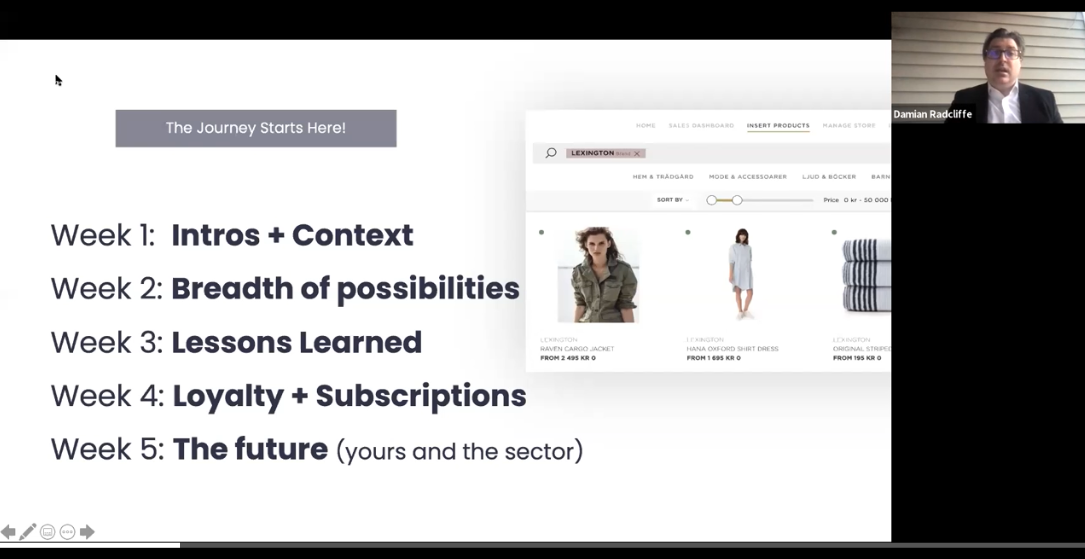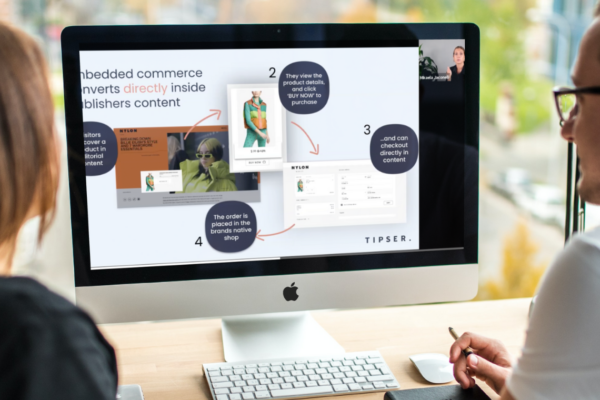FIPP and Tipser’s e-commerce course Week 1: Setting the scene – an introduction to e-commerce
FIPP’s inaugural online e-commerce training course in association with Tipser hit the ground running last week with a packed session giving an overview of why online shopping presents an opportunity for publishers they simply can’t afford to miss.
In what was the first in a five-week programme, attendees from three different continents joined Damian Radcliffe, Carolyn S. Chambers Professor of Journalism at the University of Oregon and author of several papers on the marriage between media and e-commerce, and Mikaela Jaconelli, Director of Client Success at Tipser, to discuss how publishers of all sizes can benefit from e-commerce.

“E-commerce is a huge market that is growing incredibly quickly,” said Radcliffe, citing a recent Lotame survey showing that 62 per cent of US publishers expected e-commerce to be among the three biggest revenue sources in 2021. “We have seen a rapid adoption curve globally. More than two thirds of people who are online are using e-commerce and have done so in the last month.”
While Covid-19 has influenced where consumers are spending their money, the shift towards online shopping is here to stay. “Even if the pandemic ended tomorrow, shopping habits have changed,” said Radcliffe. “What we have done over the last 12 or 18 months, the way we have embraced e-commerce, means there is probably no turning back from this.”
It was a sentiment shared by Mikaela Jaconelli. “The consumer behaviour in retail is changing rapidly – the way people consume goods, the channels they use, the information they seek and the triggers they have,” she said. “Covid has made this change even more apparent. E-commerce is growing across the globe and it doesn’t look like the trend will change.
“Furthermore the likelihood of consumers buying from new brands has never been as big as it is now. Today’s consumer browsing on the internet has less time than ever before. At the same time they are faced with more impressions than ever before so previous motivation factors like free shipping or free return is no longer motivational at all. Retailers need to search for other factors that can become motivational.”
According to Jaconelli, social is playing a more important role than ever before when it comes to e-commerce. “Today’s consumer wants to interact, they want to post personal questions and get answers. They don’t just want to see nice mass-produced images from fancy studios, they want to see products on real human beings in real environments. The more information you add to the purchase process, the more conscious the purchasing situation will be. That means you will reduce return rates because consumers are making more informative purchase decisions.”
Jaconelli extolled the virtues of embedded commerce pointing out that it gave publishers “e-commerce in the easiest way possible.”
“It’s all about embedding commerce in the channels where your audience finds inspiration,” she added. “You should never be shy about embedded commerce project you launch, quite the opposite. You should be proud of it, explain how it works, why people should care about it, that it’s safe and that they can return like any other online store. There has to be an education. You need to be consistent and readers need to know what to expect of you.”
The course on How to implement and build a successful e-commerce model around content takes place each Thursday from 9 September to 7 October 2021.










